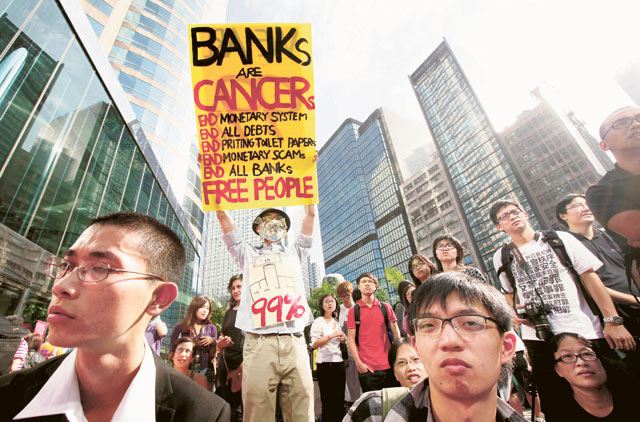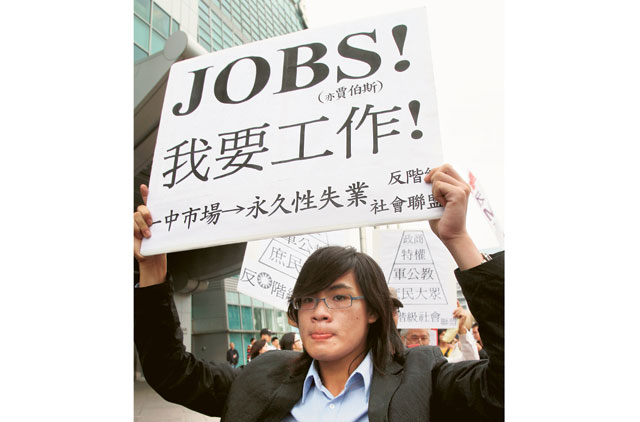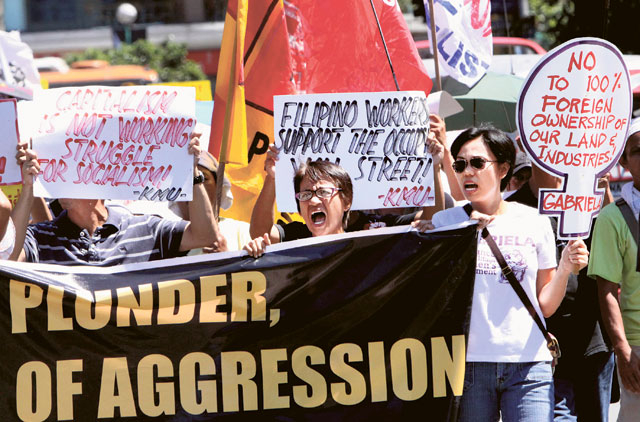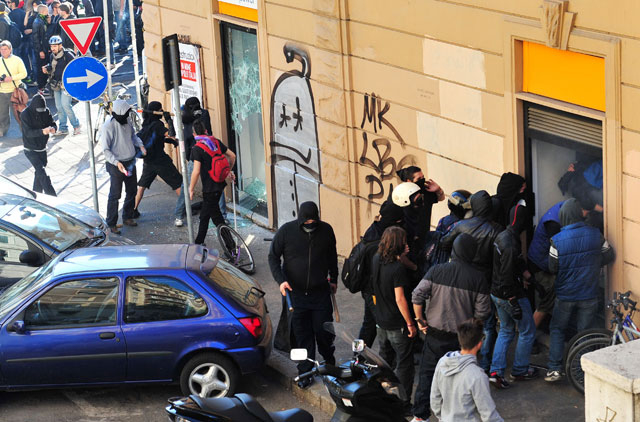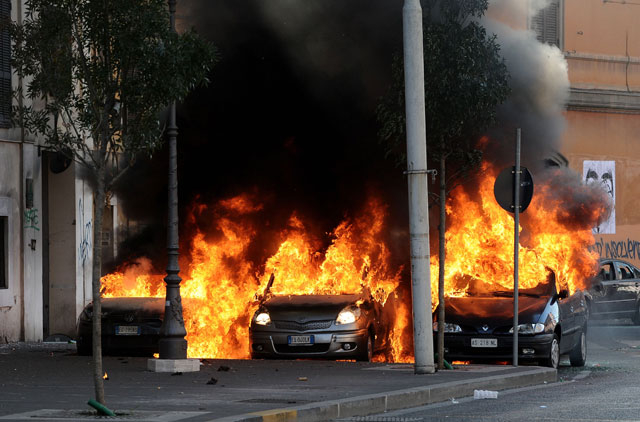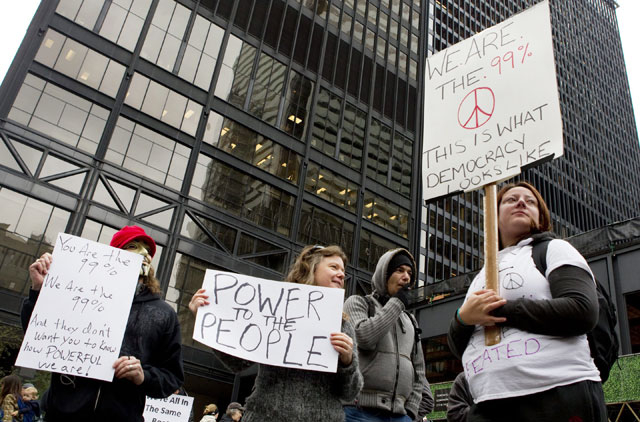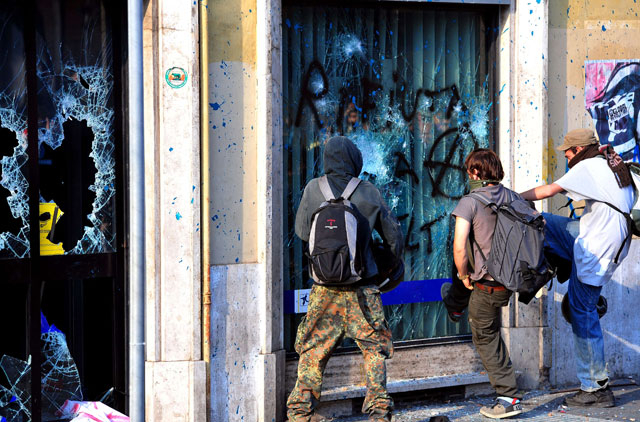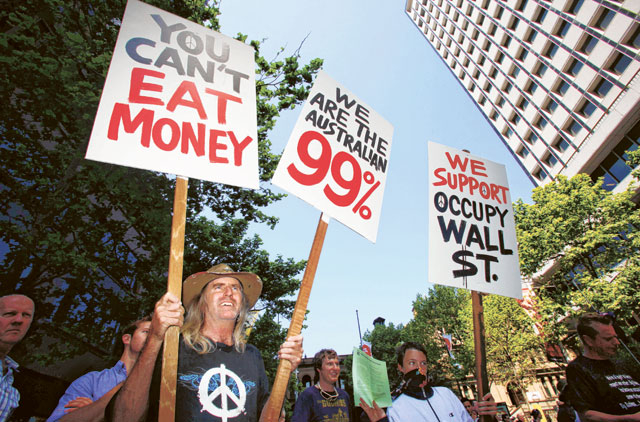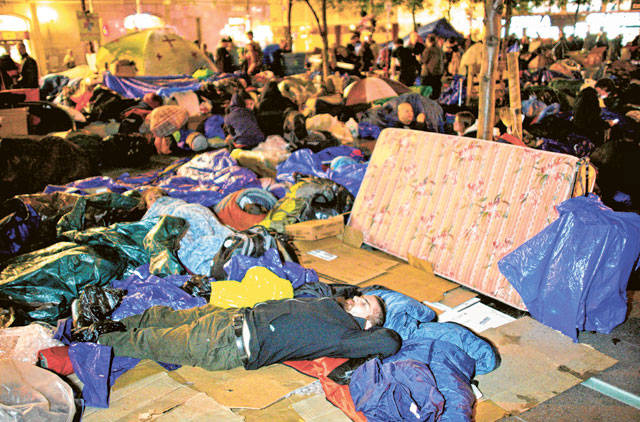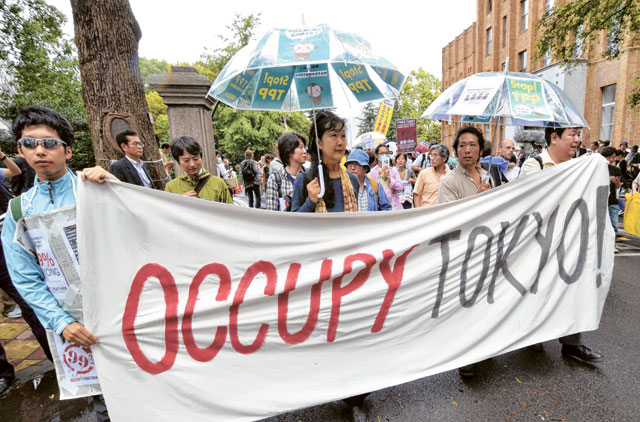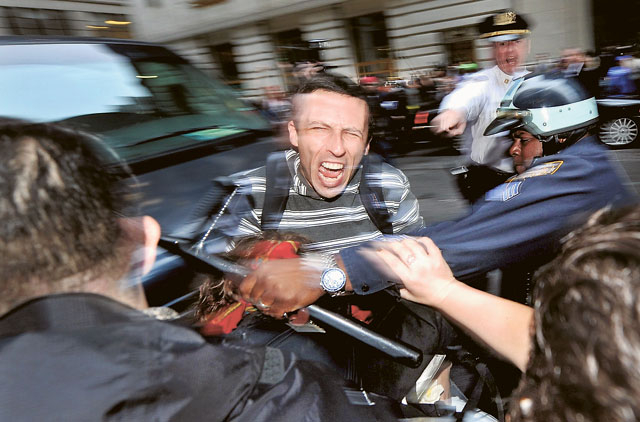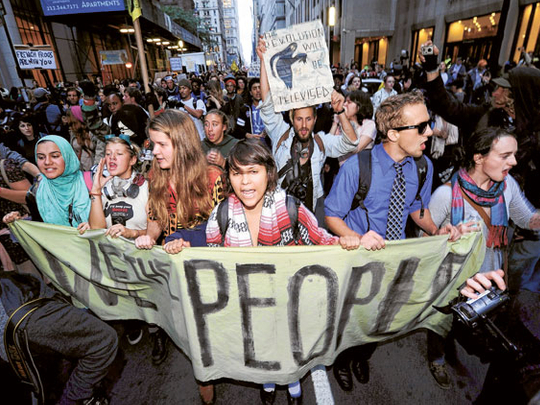
Milan: Protesters worldwide geared up for a cry of rage on Saturday against bankers, financiers and politicians they accuse of ruining global economies and condemning millions to poverty and hardship through greed.
Galvanised by the past month's Occupy Wall Street movement, the global protest began on a sunny spring day in New Zealand and is due to ripple round the world to Alaska via Frankfurt, London, Washington and New York.
Riot police prepared for any trouble, cities such as London and Athens have seen violent confrontations this year, but it was impossible to say how many people would actually turn out despite a rallying call across social media websites.
"I've been waiting for this protest for a long time, since 2008," said Daniel Schreiber, 28, an editor in Berlin. "I was always wondering why people aren't outraged and why nothing has happened and finally, three years later, it's happening."
New Zealand and Australia got the ball rolling while most of traditionally reserved Asia was quiet. Several hundred people marched up the main street in Auckland, New Zealand's biggest city, joining a rally in the city square where about 3,000 chanted and banged drums, denouncing corporate greed.
About 200 gathered in the capital Wellington and 50 in a park in the earthquake-hit southern city of Christchurch. In Sydney, about 2,000 people, including representatives of Aboriginal groups, communists and trade unionists, protested outside the central Reserve Bank of Australia.
"I think people want real democracy," said Nick Carson, a spokesman for OccupyMelbourne.Org, as about 1,000 gathered in the Australian city.
"They don't want corporate influence over their politicians. They want their politicians to be accountable."


